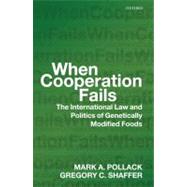
Note: Supplemental materials are not guaranteed with Rental or Used book purchases.
Purchase Benefits
What is included with this book?
| List of Tables | |
| Acronyms | |
| Acknowledgements | |
| Introduction and Overview: Biotechnology, Risk Regulation, and the Failure of Cooperation | |
| The Domestic Sources of the Conflict: Why the US and EU Biotech Regulatory Regimes Differ | |
| The Promise and Failure of Transatlantic Regulatory Cooperation through Networks | |
| Deliberation or Bargaining? Distributive Conflict and the Fragmented International Regime Complex | |
| WTO Dispute Settlement Meets GMOs: Who Decides? | |
| US and EU Policies Since 2000: Change, Continuity and (Lack of) Convergence | |
| Conclusions: The Lessons of Transatlantic Conflict, Developing Countries and the Future of Agricultural | |
| Biotechnology | |
| References | |
| Index | |
| Table of Contents provided by Publisher. All Rights Reserved. |
The New copy of this book will include any supplemental materials advertised. Please check the title of the book to determine if it should include any access cards, study guides, lab manuals, CDs, etc.
The Used, Rental and eBook copies of this book are not guaranteed to include any supplemental materials. Typically, only the book itself is included. This is true even if the title states it includes any access cards, study guides, lab manuals, CDs, etc.